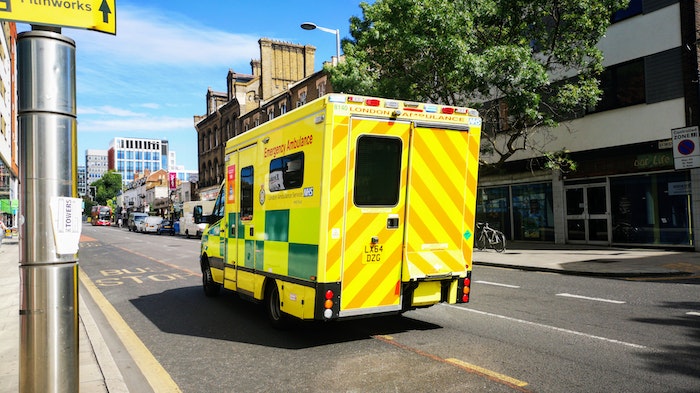Marijuana is a plant-based drug that goes by many different names, including bud, cannabis, ganja, grass, herb, pot and weed.
As well as having many different names, this substance also has many different variations, meaning that there is a huge range of effects that it can have on individuals – both in terms of their personal differences but also in terms of the chemical and medicinal properties of the drug consumed. [1]
As a plant, marijuana is also known as hemp – though this term generally refers to the non-narcotic uses of the substance – which is often used for its fibres, seeds, oils, and leaves.
As well as its notoriety as a psychoactive substance, cannabis also has a long history of being used for medicinal purposes, which is the main focus of this guide.
Is marijuana safe and effective as medicine? What are the implications of this? And might there be any long-term consequences?

As with all drugs, every individual will react differently to the substance.
This happens for a wide variety of reasons.
For example, whether or not the individual has consumed the drug before and, if so, for how long and in what quantities will have an impact on an individual’s tolerance, meaning that they may require more and more of the substance each time they consume it in order to gain the same effects.
In addition, every individual’s body will break down the substance in a different way and impact how the effects are felt in terms of intensity and location (i.e., a physical health impact or a mental health impact).
Though not every individual will react the same way each time to cannabis, there are some effects that are more commonly reported than others and these are split into physical health and mental health impacts in the following subheadings.

Many of the physical health impacts of marijuana are often not direct impacts that occur solely within the body, but rather consequences of the behaviours that marijuana may encourage some individuals to display.
The method of consuming marijuana can also have an impact on the physical health impacts.
For example, smoking marijuana may lead to throat soreness and other respiratory issues, whilst eating it may cause digestive issues depending on the individual’s constitution or existing health conditions.
Marijuana can also cause changes to an individual’s appetite which, over time, can cause struggles withweight gain and/or lossand other diet-related health problems.
One study that focused on marijuana use in young people from Canada [2] found that marijuana use from a younger age indicated a greater likelihood of an earlier sexual debut, a higher number of sexual partners, and therefore a greater chance of developing sexually transmitted infections (STIs), which continued into young adulthood.

As with the physical health impacts, the mental health impacts of marijuana will also vary massively from person to person, with some individuals reacting far more negatively to the substance than others.
This is, again, often due to tolerance, but can also massively be influenced by the variation or ‘strain’ that they are consuming.
When consuming marijuana, many individuals report feeling ‘stoned’ which often refers to feelings of being chilled out, relaxed, and happily observing and/or being in their own mind.
Others may report feeling more giggly, uplifted, and chatty.
However, on the reverse side of this, some individuals may report feelings of paranoia, lethargy, confusion and anxiety.
Some individuals also become very unmotivated – something which is a common stereotype of consuming cannabis, but may not impact every individual who consumes it.

Unlike other certain addictive substances, marijuana is not physically addictive.
A physical addiction refers to a situation in which an individual regularly consumes a substance to the point where it becomes a part of their everyday functioning, with the body now requiring the substance in order to function properly.
This is because of the ways in which the physically addictive drug enters different systems within the body, becoming a part of vital bodily processes and often impeding these processes when it is no longer present.
Commonly known substances which are physically addictive include:
However, marijuana is not known to be a physically addictive substance and, although this does not take away from its dangers as an addictive substance, it does make some of the addiction recovery processes safer and more widely accessible for many individuals.

There are countless different reasons why an individual may turn to substance use and many more reasons as to why this may develop further into an addiction.
Addiction is a non-discriminatory disease, meaning that it affects all individuals across the globe, no matter their cultural or social background and disregarding any other pre-existing conditions.
This means that it is often a highly individualised and unique process in determining the cause of one’s addiction and often requires tailored and individual therapy to recognise and overcome this at a drug and alcohol rehab.
However, one of the most common reasons for the development of an addiction is as a coping mechanism, with users consuming marijuana for its effects to overcome any stressors they are facing in their day-to-day life.

As mentioned above, there is no ‘one type’ of person who may develop an addiction – to marijuana or otherwise – but there are some general situations in which an individual may be more inclined to develop an addiction as a result of the environment or other individuals around them.
This can be due to stress, but also to peer pressure.
For example, if an individual spends time with friends and then these friends begin to consume marijuana around them, then the individual may become more and more tempted to join in with the activity, rather than to be left out or be unable to relate to the situation.
This can be dangerous as, even after the individual is outside of these social situations, they may then feel more inclined to consume marijuana alone or without the social pressure.
This is because they have developed it as a habit – a habit which can quickly develop into an addiction if the individual continues this behaviour without regard for the negative consequences.

Long before the current controversies and debates about the safety of modern marijuana as a medicine, countries and cultures all over the world have been using marijuana for its health benefits and intoxicating effects.
From Chinese emperors dictating the need to grow hemp plants, Indian recipes for hemp-based remedies, Assyrian reports of its properties and Scythians displaying knowledge of its intoxication, there have been thousands and thousands of years of reports noting marijuana’s medicinal impacts. [3]
Until marijuana’s ban in the US in 1942, marijuana was used commonly as a medicinal herb, with its variety of effects treating a wide range of health impacts and medical conditions.
However, it was also only after this time – when marijuana was able to be broken down into its different components to be studied more closely – that the true range of its effects could be further documented.

In 2017, a study in the US [4] found that 14.6% of individuals within the sample had used marijuana in the last year, with 66% of the sample believing that marijuana had strong uses in pain management, whilst 48% also believing in its benefits for epilepsy and multiple sclerosis.
The most common risks identified within this sample included legal problems (51.8%), addiction (50%) and impaired memory (42%).
However, it is important to distinguish between the beliefs of a small sample from one culture to the genuine and real-world applications and benefits of medicinal marijuana.
In addition, all effects to health – no matter positive or negative, physical or mental – should be considered in detail before any treatments or programmes are initiated.
Individuals should always consult medical professionals before beginning medical marijuana as a treatment, though more detail is provided on this process later in this blog.

As marijuana is available as a medicine in some areas of the modern world, there is already some research available into its effectiveness and efficiency as a treatment for various different conditions.
For example, in the US it was found that individuals who had easier access to marijuana for medical purposes reported a fewer number of days with poor mental health. [5]
This shows the importance of ease of access to medical marijuana for those who need it and also suggests the adverse effects should these individuals be unable to access this form of care.
Though marijuana itself may have a variety of different mental health impacts on individuals who consume it, it is important to consider that having this initial choice is also a contributing factor to its effectiveness.
Being unable to access a medicine that could potentially have a beneficial impact on an individual’s mental health can be damaging to mental health in itself.

As mentioned above, in many cases it has been found that the initial access to medical marijuana can cause more issues than it helps.
For example, in the US there are many laws across the different states that conflict as to whether medical marijuana can be provided by prescription.
This has been found to have serious and adverse effects on those who may need to access it.
One study found that due to the differing medical marijuana laws (MMLs) affecting different dispensaries across the US, the levels of recreational marijuana use were higher, with many underage (<21 years) individuals contributing to this. [6]
This is on top of cannabis – whether medicinal or otherwise – being almost entirely illegal in other countries, such as the UK.
As well as the differing laws concerning medical marijuana’s legality, there are also additional challenges that an individual may face while consuming marijuana medically (and generally) and one of the most serious factors to consider is described in the following subheading.

As with all drugs, there are many different effects that can occur as a result of mixing these substances – especially since so many combinations are still heavily under-researched and not fully understood.
One of the most documented combinations of drugs is that of alcohol.
Alcohol is a dangerous drug by itself – let alone when consumed alongside any other substance.
This is because of the ways that these drugs interact within the body, often increasing the severity of some effects and generally disrupting the body’s everyday functioning.
The combination of marijuana (whether recreational or medical) and alcohol can make many individuals feel sick, increase feelings of dizziness, and reduce an individual’s perception, therefore leaving them more prone to accidents – some of which can be life-threatening in the wrong circumstances.
Consuming any drug alongside another is risky, as it often makes it harder for the individual to discern which effects are coming from which substance and in what capacity.

In the modern world, medical marijuana is currently prescribed for a number of different conditions and disorders due to its reduction in the harmful and uncomfortable effects of these conditions.
Some of the most common of these conditions are listed below:
Though medical marijuana will not be available or be beneficial for every single individual with these specific conditions, there is evidence that it can be used effectively for these purposes in some instances. [7]

In the UK, according to the National Health Service (NHS) there are only a few situations in which medical marijuana would be prescribed to individuals at the time of writing. [8]
These are:
Even in these instances, medical marijuana would only be prescribed if the individual had tried alternative forms of treatment that had not been successful or effective and if these individuals were unsuitable for other types of care.
There are also several risks that are reported to the individual who may be receiving medical marijuana treatment, mainly involving risks of psychosis and developing an addiction, though both of these risks are often based on pre-determined factors rather than the medical marijuana alone.
This is an area that still requires a large amount of further research into its effects – both in the treatment of the individual’s condition, but also in terms of its long-term impact on the body and the mind.

Current research into medical marijuana is useful, as it shows us the findings that have already been discovered.
However, due to the common illegality of marijuana in many of the countries that lead the research into its medical uses, this is still very limited due to the risks that these individuals would face should they publish in countries where they may face legal action.
Because of this, samples are often small and limited, meaning that they do not reflect the broader picture and the more general effects that a wider range of individuals may face.
As with most issues relating to drugs, addiction, and the overcoming of these problems, there is still much research to be don.
Every individual should consider their options fully, consult with a medical professional and be aware of all risks before they begin any treatment plan involving medical marijuana.

Rehab 4 Addiction is a referral service specialising in helping individuals struggling with addiction to find the most suitable form of rehabilitation for them.
However, we also offer free and confidential advice to any individual who feels as though they may need it, including issues and struggles with marijuana – both medical and recreational.
To speak to a member of our team today, call our support hotline at 0800 140 4690
We are here to help, no matter the issue.
[1] https://www.tandfonline.com/doi/abs/10.1300/J175v01n03_05
[2] https://pubmed.ncbi.nlm.nih.gov/30511434/
[3] https://pubmed.ncbi.nlm.nih.gov/4883504/
[4] https://pubmed.ncbi.nlm.nih.gov/30039154/
[6] https://pubmed.ncbi.nlm.nih.gov/25558490/